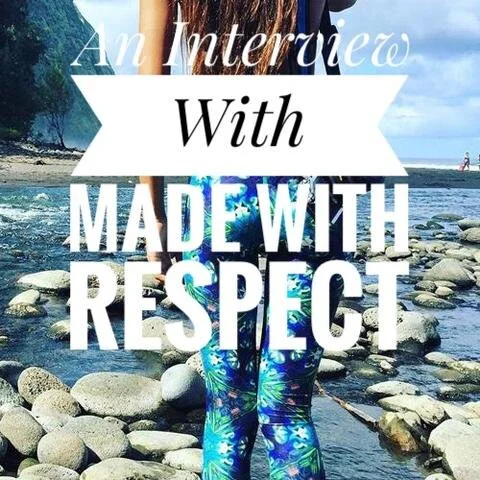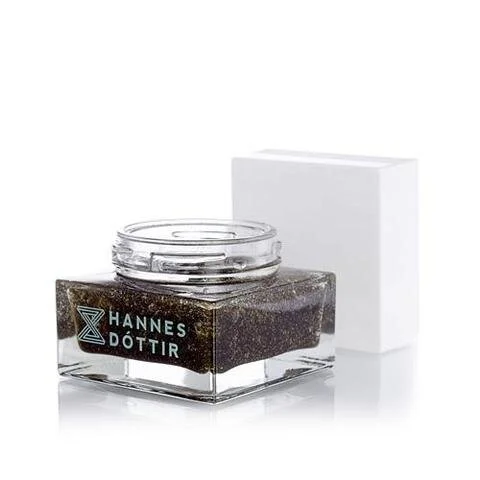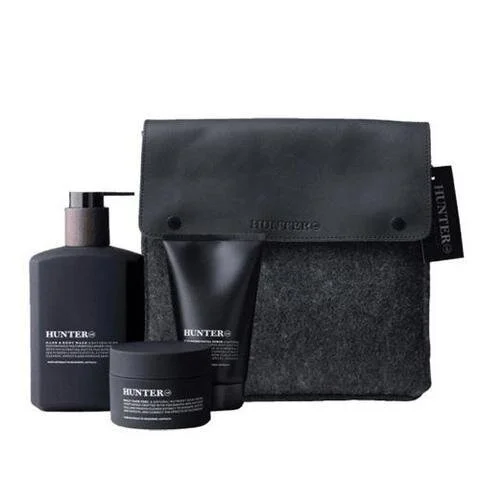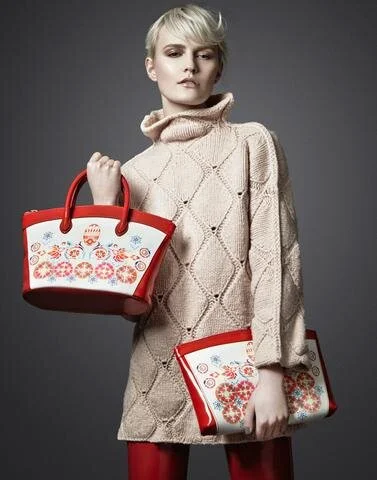An Interview with Made With Respect
Boots, Shoes & Fashion by Linda Hobden
I’m heading down under to New Zealand this week to chat to Susan Stevens, founder & CEO of “Made With Respect”. Made With Respect’s mission is to support sustainable brands from around the world in the areas of fashion, self care, home and outdoor products; as well as educating and informing consumers of the importance of making conscious choices and living more sustainably. Sounds very impressive! Hi Susan & welcome….
Hello! My name is Susan Stevens, I live in NZ with my husband and 3 children (2 girls and a boy) aged 6, 9 and 12. I travelled extensively in my 20s with my husband, experiencing many vibrant cultures and appreciating contrasting landscapes. I have always loved spending time outdoors and at the beach and now with our children we spend almost all our free time in the water surfing. I have a huge appreciation for nature and what it provides us. I am passionate about protecting the amazing natural resources that we have been blessed with, particularly the ocean and the wildlife that we share this planet with.
What was behind the inspiration for Made With Respect?
In 2018 we launched Made With Respect, but my journey really started when I left behind a successful corporate career after experiencing a suppressive work environment and learning the importance of empowering and enabling others. In 2014 when I launched my first business working with artisan brands and overseas suppliers, I saw first hand the transparency (or lack of) in supply chains. Through my work over the past few years I’ve become gravely aware of the negative impact we as consumers have on our planet, it stirred a passion within me to create a business that made a difference whilst supporting and enabling others with a shared vision.
The stats are quite scary. If the global population reaches 9.6 billion by 2050 (currently 7.5 billion and projected to increase by 1 billion in the next 12 years), the equivalent of almost three planets could be required to provide the natural resources needed to sustain our current lifestyles. Given we’ve only got one planet, that is quite a concern. Add to that the WWF 2018 Living Planet report which shows evidence that nature is dying with 60% decline in the animal population across the planet, 83% decline in freshwater species and 90% of seabirds consuming plastic. Alarmingly, if we continue with the current rate of plastic waste there will be more plastic than fish in the ocean by 2050. We have to stop burying our heads and being ignorant of our behaviour because unless we change, our future looks bleak. I created Made With Respect to not only be a platform that champions sustainable brands who give a damn, but through MWR Movement, we are educating and informing consumers of the crucial role we play in the problems our planet face and through taking consistent conscious actions we can start to be part of the solution.
Your company is a proud member of “1% For The Planet” – what does that entail?
As a member of 1% for the Planet, MWR donates a minimum of 1% total revenue to approved nonprofit partners who do essential work across six core focus areas; climate, food, land, pollution, water and wildlife. So that means that every dollar Made With Respect generates gives back to the health of our planet.
Your website features brands from all around the world – from France, UK, Australia, New Zealand, Brazil, Spain, Peru, Italy, USA, Ireland, South Africa, Sri Lanka, Sweden, Canada, Denmark, Netherlands, Iceland, Germany, Lithuania. What criteria have you have set for brands to qualify to partner with MWR?
Brands who we partner with that design and manufacture sustainable products in self-care, fashion, home and outdoor must fall within the following 4 pillars;
Devoted to craftsmanship; making quality products that last and can be passed down through the generations.
Transparent supply chain; good working conditions, no child labour
Natural materials & natural ingredients; no chemicals or toxins (organic where possible), recycling, upcycling, regeneration and reduction of waste, embracing renewable resources and preserving the environment
Contributing to make the world a better place; supporting local or disadvantaged communities, being more than a profit driven operation
We have amazing brands who are giving back on so many fronts, not only are they operating in a circular economy, minimising waste and making the most of resources but many are contributing part of their profits to worthy causes or supporting disadvantaged communities.
We absolutely have to embrace these brands, we have to shine the spotlight on them and make them the example.
From clothing to bed linen, and lots of categories inbetween, your website caters for many. To date, what has been the most popular items/products/brands ?
Skin care, followed by children’s & women’s fashion, has been the most popular categories so far. But ideally we want to be known as a place where consumers can conveniently shop (and support) sustainable brands across categories. There are amazing sustainable brands in the market, but often they’re not easy to find as they don’t have the marketing budgets or distribution networks of the multi-nationals that are purely profit driven.
In a world where people tend to be time poor, if we can’t find what we want then we’ll resort to the easiest and most convenient option – the problem with this is often the quickest and easiest is also the most damaging and destructive. One of MWR’s goal, through our partnerships with sustainable brands, is to make it easier for consumers to find, buy and support those brands that are making a positive difference
What’s your favourite item?
I’ve got so many favourite items and brands that I can’t name just one!
This southern summer I’ve loved wearing my NZ & Brazilian Aurai swimwear top made from bio-degradable and regenerated materials. You’ll also find in my wardrobe my Wolven leggings made from a fabric that is regenerated from recycled plastic bottles, along with my Atode Skater Navy Lace Dress and Atode Audrey Orange Silk Dress. My daughters favourite fashion label is Feather Drum in Australia, they have a selection of timeless, gorgeous organic cotton pieces hanging in their wardrobes too!
In my bathroom you’ll find certified organic skincare products from The Divine Company in Australia, Soley in Iceland and Icelandic brand Hannes Dottir. You’ll also find my husband’s all natural male grooming products from Hunter Lab in Australia, 66°30 in France and C3 in the USA. And I accessorise with my gorgeous Tamara Salman Cherry Red Mini Tote
As Made With Respect is based in New Zealand, are the products on the website available to purchase worldwide?
Absolutely, our brands are located from all around the world and their products are shipped to customers around the world.
At Made With Respect we are conscious of our own carbon footprint. To ensure we operate sustainably and in order to reduce our own impact on the environment, rather than holding our brand’s products in a central warehouse, instead the brand ships directly from their workshop to our customers. There is no double handling of product and no additional packaging wastage.
I noticed on your website you have The MWR 31 Days Of Sustainable Habits Challenge – can you explain this challenge? What habit did you find was the hardest to change?
The objective of MWR 31 Days of Sustainable Habits Challenge is to show consumers we don’t need to go to extreme measures, we simply have to make more conscious choices in our everyday life to make a positive impact, we want to reinforce that small changes ultimately make a difference. I see this as being the crucial place to start, because it’s often the starting that is the hard part, once started it’s much easier to build momentum and once you start something you become more aware and more educated, education is key.
I think people can become overwhelmed when they don’t know what to do and where to start, the mentality then becomes `how can one person possibly make a difference’. What our Sustainable Habits Challenge does, is it shows consumers there are simple things they can easily implement into their lifestyle that will make a difference. For instance;
Place lint in the trash rather than wash it down the drain. Why? Because microfibres, which are too small to be caught by waste treatment plants, are responsible for 85% of shoreline pollution across the globe.
Buy natural fibres instead of synthetics materials. Why? Because they are by-products of petroleum and are non-biodegradable plus during the wash cycle these micro plastic fibres are released into our waterwaste and end up on the shoreline, eaten by wildlife and fish and polluting our foodchain.
Carry a reusable drink bottle. Why? Because 50 billion plastic drink bottles are consumed every year, for every 10 bottles, only 2 end up recycled the rest end up in landfills and polluting our oceans and beaches.
The Sustainable Habits Challenge isn’t just about telling people what to do but also educating and informing them why they need to do it.
Personal now – what outfits and shoes would you normally be found wearing?
I generally wear very neutral colours; white, grey, beige, navy blue and in particular black. I’ve always felt that colour dates and may only be ‘on-trend’ for that particular season whereas neutral colours, especially black is very versatile, timeless and can be dressed up or down.
In summer you’ll mostly find me in shorts & a camisole or a little black floaty summer dress with sandals. In winter I love wearing jeans or black pants, a tee, jacket or blazer and a pair of casual white sneakers or ankle boots.
Do you have any favourite shops or online sites ?
Yes, Made With Respect!
I’m a very conscious shopper (I always have been), I prefer to buy less but buy quality pieces that last and look great for years.
With MWR I always support our brands first. If I do find myself browsing in clothing shops and I see something I like I always check the label first, if it’s made from sustainable materials such as organic cotton, linen, tencel then I’ll try it on. Once you become aware, it’s amazing how easy it is to spot synthetic materials.
What’s next on your clothes/shoe wish list?
At the moment I’ve got AmaElla lingerie on my wish list.
I don’t buy a new wardrobe every season. I have pieces that I’ve worn, both clothes and shoes (that get reheeled) year after year, because they are made from quality materials that wear well, wash well and last. They are designed to be timeless so they transcend fashion trends and for any pieces I do chose to take out of my wardrobe, they are always in great condition to recycle at op shops, or loved all over again when passed on to girlfriends, my mum & more recently my daughter.
Boots or Shoes?
I love ankle boots in cooler weather. A good quality & timeless style will last you years, they are so versatile with pants, jeans, dresses and skirts, you can dress them up or down.
Links you would like to share e.g. website/facebook etc so that readers can find out more about Made With Respect.
The MWR blog: https://www.madewithrespect.com/blogs/the-mwr-blog
Instagram: https://www.instagram.com/MWR.movement
Facebook: https://www.facebook.com/MWR.movement
Thank you for your interview Susan. So many important points to ponder over and the sustainable habits challenge is a start and doable. Your website features some beautiful products too – thank you for introducing us to some quality and sustainable brands.
Linda x








